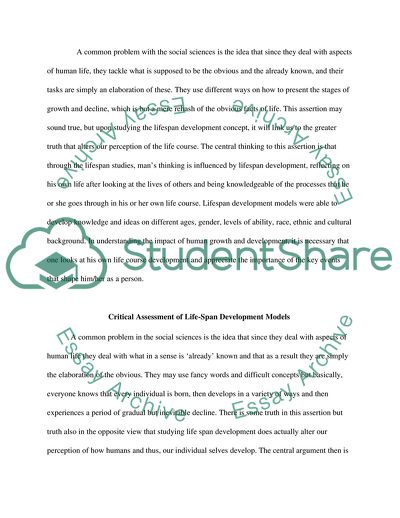Cite this document
(Lifespan Development Have Altered Peoples Perception of the Life Coursework, n.d.)
Lifespan Development Have Altered Peoples Perception of the Life Coursework. Retrieved from https://studentshare.org/social-science/1714956-critically-assess-how-studies-of-lifespan-development-have-altered-our-perception-of-the-life-course
Lifespan Development Have Altered Peoples Perception of the Life Coursework. Retrieved from https://studentshare.org/social-science/1714956-critically-assess-how-studies-of-lifespan-development-have-altered-our-perception-of-the-life-course
(Lifespan Development Have Altered Peoples Perception of the Life Coursework)
Lifespan Development Have Altered Peoples Perception of the Life Coursework. https://studentshare.org/social-science/1714956-critically-assess-how-studies-of-lifespan-development-have-altered-our-perception-of-the-life-course.
Lifespan Development Have Altered Peoples Perception of the Life Coursework. https://studentshare.org/social-science/1714956-critically-assess-how-studies-of-lifespan-development-have-altered-our-perception-of-the-life-course.
“Lifespan Development Have Altered Peoples Perception of the Life Coursework”. https://studentshare.org/social-science/1714956-critically-assess-how-studies-of-lifespan-development-have-altered-our-perception-of-the-life-course.


